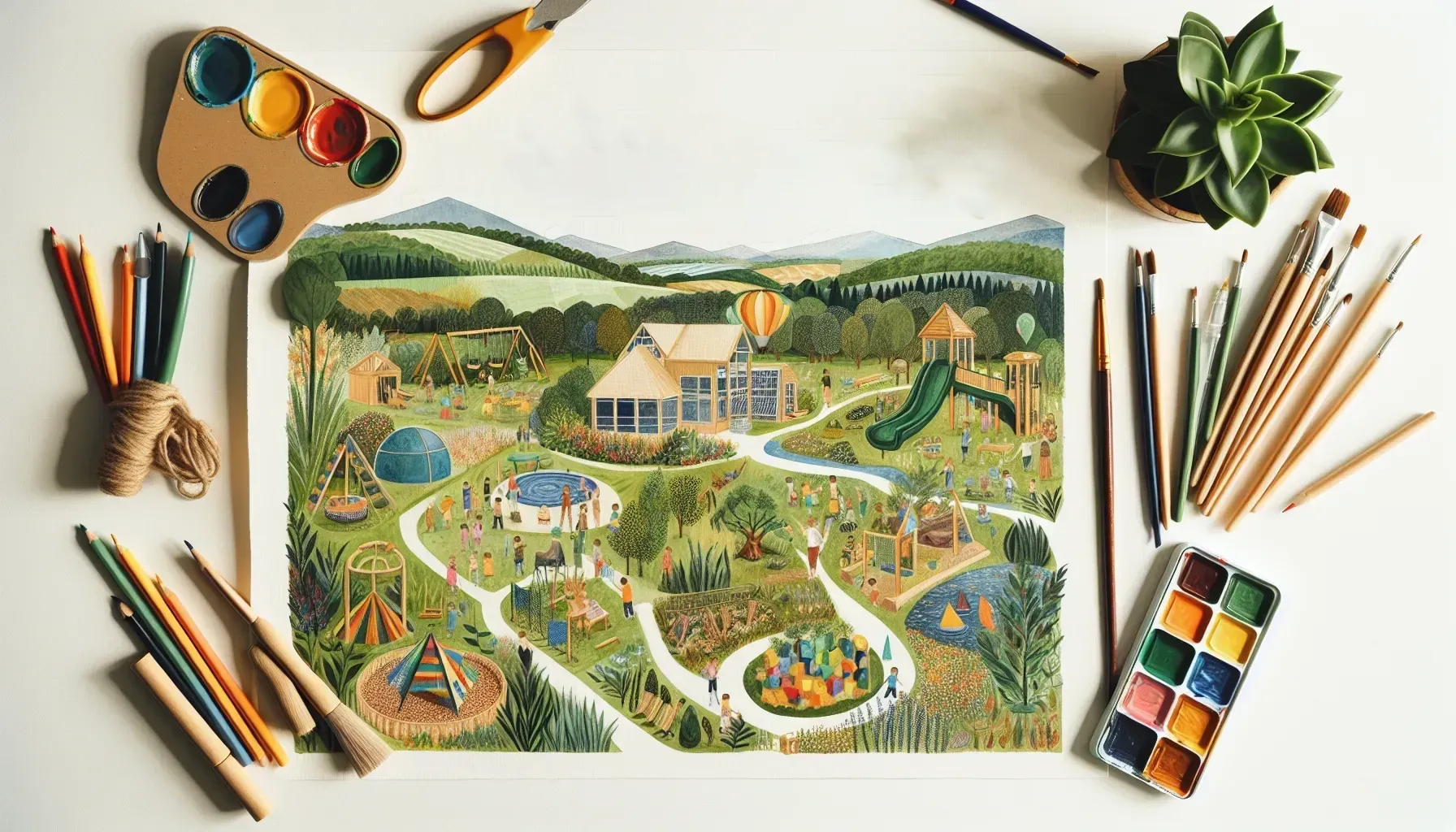Green Initiatives in Therapeutic Recreation for Autistic Children

As we delve into the world of therapeutic recreation for autistic children, it's essential to explore the innovative and inclusive initiatives that prioritize environmental sustainability and holistic well-being. This comprehensive guide delves into various eco-friendly approaches, from adaptive playground designs to sustainable play equipment utilization, emphasizing the importance of promoting outdoor activities with a focus on environmental responsibility.
The foundation of inclusive therapeutic recreation lies in creating spaces where all children, including those with autism, can engage in recreational activities with ease. Eco-friendly adaptive playground designs achieve this by incorporating elements that cater to diverse sensory needs while integrating sustainable principles. Features such as sensory gardens, accessible pathways, and inclusive play structures contribute to a harmonious environment that promotes social interaction and sensory stimulation for children on the autism spectrum.
Eco-Friendly Adaptive Playground Designs
Incorporating sustainable play equipment not only aligns with eco-friendly practices but also enhances the overall sensory experience for autistic children. From recycled plastic fixtures to energy-efficient lighting, autism-focused recreation centers can embrace sustainability by carefully selecting and utilizing play equipment that contributes to a greener environment. This conscientious approach aligns with the values of environmental responsibility while fostering a supportive and enriching recreational setting for children with autism.
Sustainable Play Equipment in Autism Recreation Centers
Garden therapy emerges as a transformative approach in therapeutic recreation for autistic children, emphasizing the profound connection between individuals and the natural world. Horticulture programs tailored to the needs of autistic children offer them opportunities to engage in meaningful activities that promote environmental awareness, sensory exploration, and skill development. Cultivating plants, tending to sensory gardens, and experiencing the therapeutic benefits of nature contribute to an enriching experience that nurtures both personal growth and environmental connection.
Adventure-based eco-wellness activities serve as powerful tools for promoting physical activity, self-confidence, and environmental consciousness among autistic children. Through engaging in nature-based adventures such as hiking trails, nature walks, and ecological explorations, autistic children can develop a deeper appreciation for the natural world while enhancing their physical and emotional well-being. These activities foster a sense of unity with nature while providing an avenue for holistic growth that extends beyond traditional recreational pursuits.
Garden Therapy and Environmental Connection
Art serves as a universal language through which autistic children can express themselves creatively and authentically. Eco-art workshops seamlessly integrate sustainability into artistic endeavors, encouraging children to explore their creativity while emphasizing the use of recycled materials and eco-friendly techniques. This innovative approach not only nurtures artistic talents but also instills a sense of environmental responsibility, inspiring autistic children to channel their creativity in ways that uphold sustainability principles.
Adventure-Based Eco-Wellness Activities
Encouraging autistic children to engage in outdoor activities accompanied by an emphasis on environmental responsibility fosters a profound understanding of the interconnectedness between individual actions and their impact on the environment. By instilling eco-conscious practices within recreational engagements such as outdoor games, nature scavenger hunts, and communal gardening projects, children can develop a heightened sense of environmental stewardship while enjoying the benefits of outdoor recreation tailored to their unique needs.
Eco-Art Workshops for Creative Expression
Creating inclusive green spaces goes beyond physical accessibility; it entails fostering an environment where all children feel welcomed and valued while actively participating in recreational experiences. By nurturing green spaces that prioritize inclusivity, environmental engagement, and sensory diversity, therapeutic recreation for autistic children cultivates a sense of unity and connectedness within a sustainable framework. These spaces become emblematic of collaboration, empathy, and environmental awareness, enriching the experiences of autistic children as they engage in recreational pursuits.
The holistic integration of sustainability within therapeutic recreational programs is pivotal in nurturing environments where autistic children can thrive emotionally, socially, and cognitively. By intertwining environmentally conscious practices into program curricula ranging from adaptive sports to creative expression the overarching goal is to instill an enduring appreciation for sustainability while empowering autistic children to lead fulfilling lives within inclusive recreational settings.
Promoting Outdoor Activities Responsibly
In summary, by embracing green initiatives in therapeutic recreation for autistic children, we not only foster environments that cater to their unique needs but also instill values of empathy, inclusivity, and environmental responsibility. Through sustainable play equipment utilization, horticulture programs, adventure-based eco-wellness activities, eco-art workshops, and the creation of inclusive green spaces, we create spaces where every child can flourish while harmonizing with the natural world.
Frequently Asked Questions
Eco-friendly adaptive playground designs focus on creating inclusive recreational spaces that cater to children with diverse sensory needs. These designs incorporate sustainable elements like sensory gardens, accessible pathways, and inclusive play structures, promoting social interaction and sensory stimulation for children on the autism spectrum.
Garden therapy offers autistic children a unique opportunity to connect with nature through horticulture programs. Engaging in activities like cultivating plants and tending to sensory gardens promotes environmental awareness, sensory exploration, and skill development, contributing to personal growth and a deeper connection with the natural world.
Holistic sustainability integration in therapeutic recreation is crucial for fostering environments where autistic children can thrive emotionally, socially, and cognitively. By embedding environmentally conscious practices into various programs, such as adaptive sports and creative expression, it cultivates an enduring appreciation for sustainability while empowering children to lead fulfilling lives.
Check Out These Related Articles

Myth vs. Fact: Unraveling the Truth About Special Diets and Autism

Synthesizing Success: The Evolution of Pharmacotherapy in Autism Management

Precision Nutrition: Optimizing Diets for Autistic Children Based on Genetic Profiles
